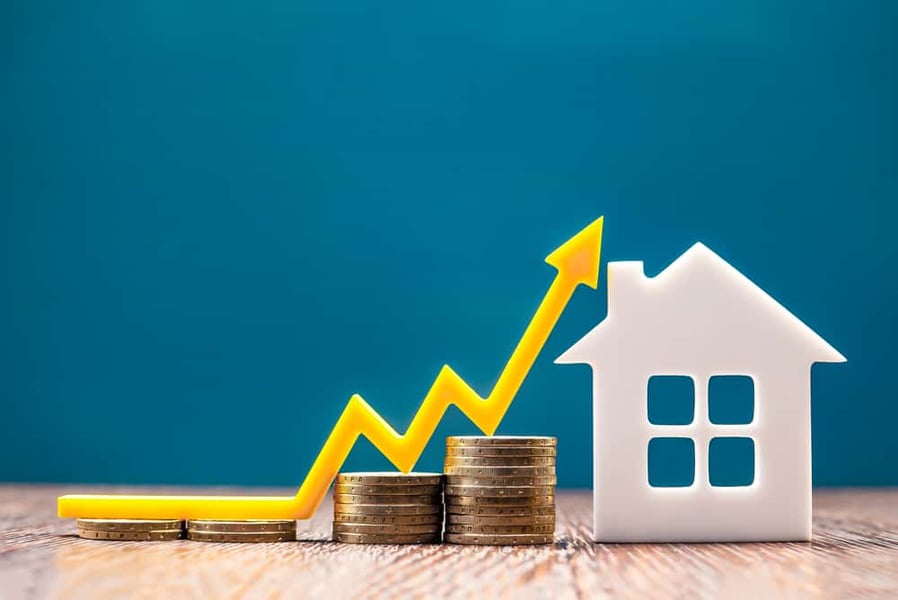House prices have risen by the highest annual growth rate the UK has seen since November 2004, according to the Office for National Statistics (ONS) House Price Index.

Average house prices are booming, having increased by 13.2% in the year to June 2021, which Anna Clare Harper, chief executive of SPI Capital, believes is "unsurprising."
House prices rose by the highest annual growth rate the UK has seen since November 2004, according to the Office for National Statistics (ONS) House Price Index.
Harper said: "The tapering down of the temporary reduction in stamp duty began at the end of June, meaning this was a ‘bumper month’.
"Investors, homeowners, solicitors and banks pushed hard to get transactions done in time for buyers to capitalise on lower transaction costs, a bit like the impact of a summer sale.
"Policies designed to protect consumer and investor confidence through the pandemic have created a medium-term boom, rather than this happening ‘despite’ COVID-19."
She went on to explain that house prices have been boosted by the temporary stamp duty reduction designed to fuel the housing market amidst the pandemic, lockdown-led upsizing and a flight to safer assets alongside long term low interest rates.
However, there are negatives to these booming prices, Harper added: "The trouble is that while the outcome boosts economic confidence, it is at odds with the policy agenda on affordable home ownership.
"Average house prices of £265,668 seem extortionate compared with median household income of £29,000.
"So will house prices fall later in 2021 and 2022? Probably not, or at least not by much.
"Price rises will slow, but people don’t tend to sell houses at a lower price than they paid, unless they really need to.
"And, with interest rates - and therefore mortgage repayments - so low, the kind of mass sell-off needed from property owners if prices were to fall seems unlikely."
Conor Murphy, chief executive of Smartr365, said that the ONS evidence that house prices are booming is to be celebrated, adding: "Market momentum remains strong and I’m confident that the availability and pricing of credit will ensure the market retains its buoyancy post-September.
“There are now just six weeks until the nil-rate band reverts to the £125,000 threshold, making it essential that brokers adopt tech solutions to speed up the application process and help as many buyers meet the deadline as possible."
Murphy points to the use of automatic decisions in principle (DIPs), digital ID verification and open banking as ways that tech can save brokers time to do complete deals.
He added: "The stamp duty holiday has shown that disruption can be a force for good and it’s time the mortgage market took the same approach to digitalisation.”
Miles Robinson, head of mortgages at Trussle, noted that while house prices have increased on average, the industry is starting to see a slow-down in the rate at which property value is appreciating.
He said: "With the stamp duty deadline coming to a complete close in the nearing weeks, it is likely that house price growth will start to cool off slightly.
"This is due to the stamp duty holiday becoming out of reach, enabling consumption to resume at a pre-pandemic pace."
Robinson said that demand has far outstripped the supply of homes for sale and, as a result, properties for sale are being purchased quickly, often above the asking price and beyond the property’s original value.
He said: "This is putting buyers at risk of lenders down valuing during the mortgage process and even if applications are successful, homeowners could find themselves in negative equity later down the line.
"Those starting a property purchase now should factor stamp duty into their costs to avoid any unwelcome surprises later down the line that might jeopardise their property purchase.”



